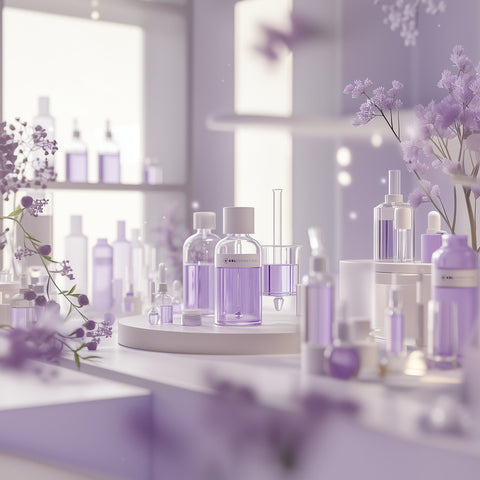Natural fragrances are derived from plant-based sources such as flowers, fruits, spices, and woods. These scents are extracted using methods like distillation or cold pressing, preserving the raw essence of the ingredients. While natural fragrances are often preferred for their botanical authenticity, they can be less consistent due to natural variations in raw materials.
How synthetic fragrances are made
Synthetic fragrances are created in a lab using aroma compounds that mimic natural scents or produce entirely new ones. These fragrances offer greater stability, longevity, and consistency. They are commonly used in perfumes, skincare, and household products because they can replicate rare or expensive natural ingredients at a lower cost.
Key differences between natural and synthetic fragrances
Here are some of the main distinctions between the two types of fragrances:
Source – Natural fragrances come from botanical extracts, while synthetic fragrances are made using chemical compounds.
Longevity – Synthetic scents tend to last longer because they contain fixatives that help retain fragrance.
Consistency – Synthetic fragrances maintain the same scent over time, while natural ones may vary due to seasonal or regional factors.
Allergenic potential – Both types can cause sensitivity, but natural essential oils may contain allergens like limonene or linalool.
Environmental impact – Natural fragrances require extensive plant harvesting, while synthetic alternatives can reduce strain on natural resources.
Which type is better?
The choice between natural and synthetic fragrances depends on personal preference and usage. Natural fragrances appeal to those who prioritize botanical purity, while synthetic options provide durability and affordability. Many perfumes and skincare products use a blend of both to balance performance and sustainability.
Fragrance trends in cosmetics
The beauty industry is embracing sustainable fragrance options, with many brands focusing on biodegradable, cruelty-free, and hypoallergenic formulations. Advances in research allow for safer and more environmentally friendly synthetic scents while maintaining the complexity of natural aromas.
Finding the right fragrance solution
Whether you prefer natural, synthetic, or a combination of both, working with an experienced fragrance developer ensures quality and safety. For customized fragrance solutions, consider consulting an expert in R&D and formulation.
Learn more
If you're looking for fragrance options in cosmetic manufacturing, explore professional services that cater to your brand’s needs. For more information, contact us.
